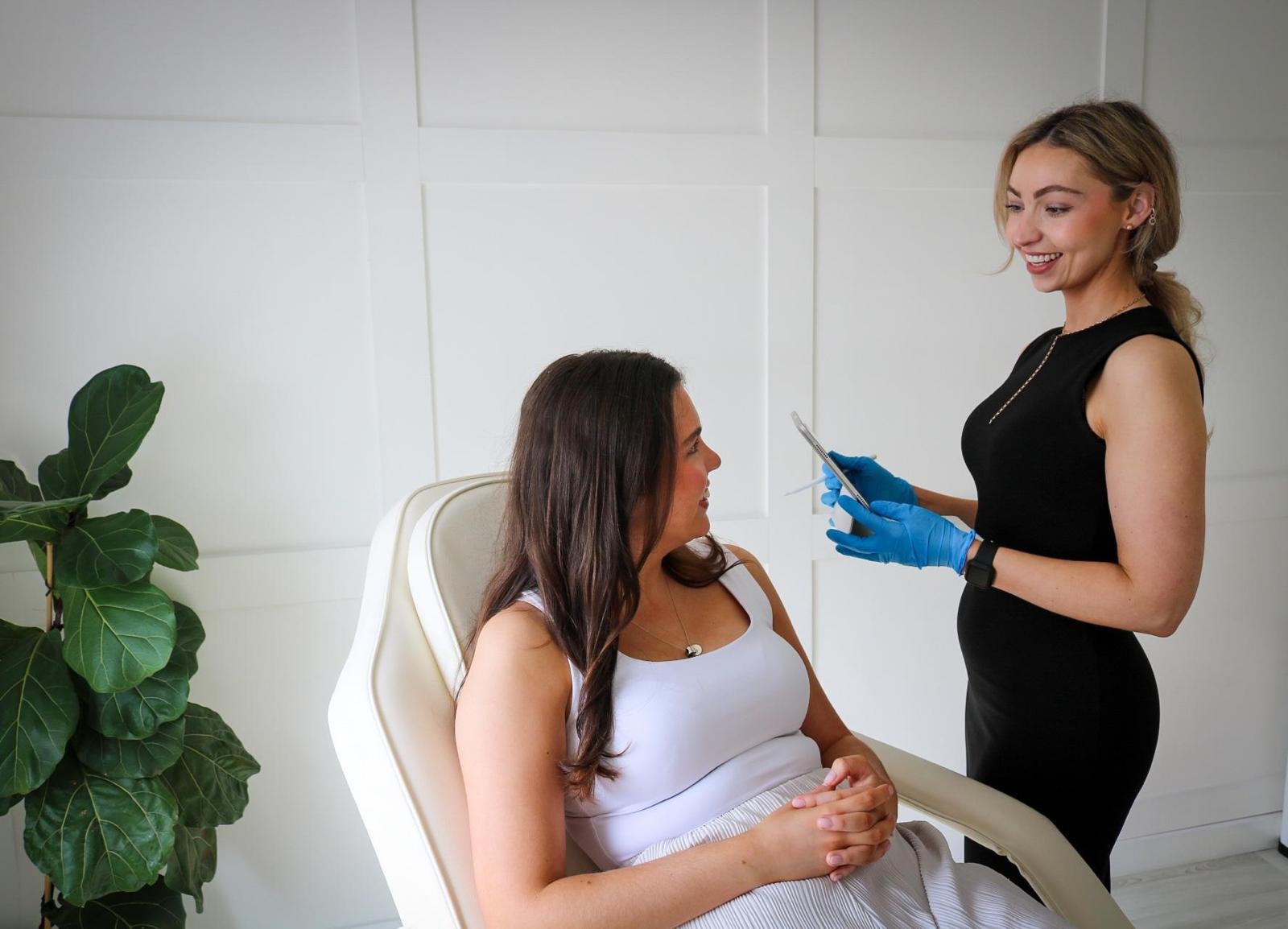
Chemical Peels
Everything you need to know
What are chemical peels?
Chemical peels are skincare treatments where a chemical solution is applied to the skin to dissolve the “glue” that holds the dull, dead upper layer of skin to exfoliate and rejuvenate. They're like a refresh button for your skin, helping to improve texture, tone, and overall appearance.
How do chemical peels work?
These peels work by applying a mild acid solution to the skin, which loosens and removes dead skin cells, revealing smoother, brighter skin underneath.
Superficial peels typically use gentle acids like alpha hydroxy acids (AHAs) or beta hydroxy acids (BHAs), such as glycolic acid, salicylic acid, or lactic acid. These acids help to dissolve the glue that bonds between skin cells, promoting exfoliation and stimulating collagen production for a fresher, more youthful complexion.
Who are chemical peels great for?
Chemical peels are excellent for a wide range of skin concerns, including dullness, uneven texture, mild acne, sun damage, pigmentation and fine lines.
They're suitable for most skin types and tones, making them a versatile option for anyone looking to improve the overall health and appearance of their skin.
Whether you want to maintain your glow or address specific concerns, a superficial peel can be tailored to meet your skincare goals. Why not book a consultation with Charlotte?
Is Botox right for me?
Generally, if you've got those bothersome wrinkles and lines that you'd love to bid farewell to, you're likely a great candidate for wrinkle relaxing!
Whether you're in your twenties and want to prevent wrinkles from forming or you're a seasoned pro looking to smooth out those laugh lines, wrinkle relaxing treatments can help.
You’ll have a full consultation before any treatment to ensure it’s the right treatment for you.
What are the risks of chemical peels?
While peels are generally safe, they may carry some minor risks and side effects.
These can include temporary redness, irritation, mild stinging, or peeling of the skin following treatment.
In rare cases, more serious complications such as infection, scarring, or changes in skin pigmentation may occur, particularly if the peel is performed incorrectly or on sensitive skin.
However, these risks are minimised when treatments are administered by a qualified skincare professional like Charlotte.
Quick Facts
-
Using AHAs and BHAs to remove the dull, dead uppermost layer of skin to reveal new, fresh skin.
-
4 - 6 weeks
-
No! Some peels are a little bit “spicy”, but they don’t hurt.
-
From £75



